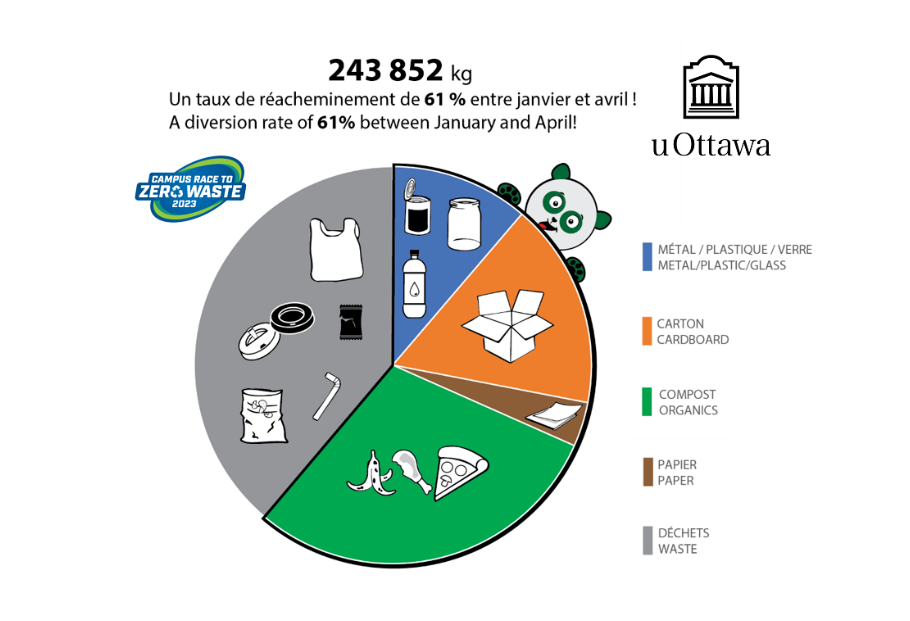As the affordability crisis takes its toll on students across the country, the University of Ottawa is the first university in Canada to launch an initiative to help student access affordable – or rather free – food, all while tackling food waste.
Over 56 percent of postsecondary students in Canada grapple with food insecurity or are struggling to afford balanced and nutritious meals. The uOttawa Student Union’s food bank has seen a 400 per cent increase in demand over the past three years. These striking facts sparked the university’s decision to launch the Free Food Alert app.
Students who sign up for the program will receive an alert on their phones when there is leftover food from conferences, ceremonies, events and meetings on campus.
“Donating leftovers to offsite shelters and community organizations is a great initiative, but can be logistically challenging and labour intensive,” Cassandre Pretorius, manager of events and protocol with uOttawa’s Ceremonies and Events office, said in a press release. “This program will make it easier for event organizers to donate food and, most importantly, provide food to our students.”
Free Food Alert is also part of the university’s larger approach to waste reduction. The University of Ottawa was the first university in the province to ban the sale of bottled water, instead encouraging the use of reusable cups by offering a 25 cent discount on beverages. The zero-waste design of the dining hall has also reduced take-out packaging by nearly one million items per year.
Since September 2023, the school has been using Frendlier, a reusable container program, at many of its food service locations. With a 50 cent deposit, reusable containers can be used for take out food and then returned through the Frendlier app. The program helps to eliminate plastic and other waste from food packaging.
The university has also banned Styrofoam packaging campus wide.
uOttawa has committed to being a zero waste campus by 2025.
